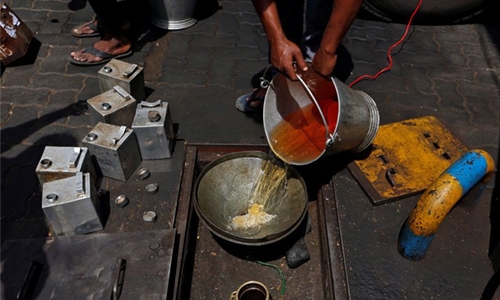India eases fuel retail rules, allows non-oil firms
India yesterday relaxed its rules for setting up fuel stations in the country after a gap of 17 years, opening to non-energy companies a sector long eyed by global oil majors. India, where fuel demand is expected to rise in coming years, has become a lucrative market after the government removed controls on retail pricing of gasoline and gasoil. However, regulations framed in 2002 had made it difficult for new players to obtain a retail license, such as an investment commitment of 20 billion rupees ($282 million) in the country’s oil and gas sector.
Under the new rules, any company with a net worth of 2.5 billion rupees will be eligible for marketing rights, a government statement said, paving the way for convenience stores, shopping malls and hypermarkets to sell fuel. Indian fuel retailing is dominated by state refiners - Indian Oil Corp, Bharat Petroleum Corp and Hindustan Petroleum Corp.
Companies including Reliance Industries, Royal Dutch Shell and Nayara Energy, partly owned by Russian oil major Rosneft, account for about 10 per cent of the roughly 64,625 fuel stations in the country. The new rules will help in attracting investment and create jobs, Information and Broadcasting Minister Prakash Javadekar told a news conference. “Competition will increase productivity and services, eventually benefiting the consumers,” he said.
Global oil companies including Saudi Aramco, Trafigura’s Puma Energy and France’s Total have said they are interested in setting up fuel stations in India. The new rules mandate that in addition to gasoil and gasoline, companies must install facilities within three years for the sale of at least one alternative fuel such as compressed natural gas, liquefied natural gas or electric charging. Under the new rules, companies must set up 5pc of their proposed retail outlets in rural areas, the statement said.
Related Posts

